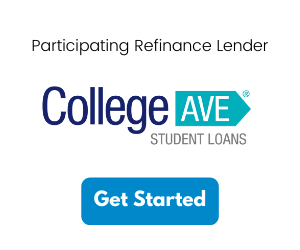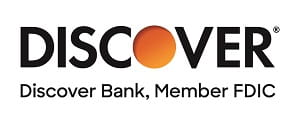What is a Cosigner?
A cosigner is a person who agrees to be held legally responsible for paying back a loan if you are unable to do so. This can be a parent, relative, close friend, etc. Both the borrower and the cosigner are equally responsible for repaying a loan in full.
Key Takeaways on Student Loan Cosigners
- A cosigner is someone who agrees to share responsibility for a loan with the borrower.
- Cosigners are often required for private student loans for undergraduate students unless the borrower has a strong credit history.
- Cosigners can bolster the student applicant's probability of approval.
- Cosigners should be creditworthy and may need to meet other criteria set by lenders.
- Cosigners can help the borrower qualify for a lower interest rate and start to build their own credit history.
Do I Need a Cosigner?
While you may need a cosigner for a private student loan, you may not need one for most federal student loans. According to a study from MeasureOne, over 90% of undergraduate students needed a cosigner for a private student loan for the 2019-2020 academic year.
However, when it comes to federal student loans, only Direct PLUS loans may require you to have a cosigner if you are found to have adverse credit. All other federal student loans, like Direct Stafford Loans (subsidized and unsubsidized) do not require and or allow you to add a cosigner if you are denied the loan.
Why You Might Need a Cosigner
If you are unable to qualify for a student loan on your own, you may need a cosigner. To determine whether a potential borrower meets their criteria, a private student loan lender will assess the borrower's credit history and level of risk. Each lender has their own criteria, typically considering factors such as credit score, credit history, work history, and debt-to-income ratio.
Having a low credit score, history of late payments, or issues with debt default may require a cosigner. Not having an established credit history can be a reason to seek a cosigner, a common situation for undergraduate students.
Even if you qualify for a loan, using a creditworthy cosigner can still be beneficial. New borrowers or those who meet minimum requirements may not secure desired rates based on their creditworthiness. A creditworthy cosigner can help qualify for better loan terms and rates, making it a favorable option.
Who Makes a Good Cosigner?
Many students use a family member as a cosigner. This could be a parent, aunt, uncle, or grandparent. However, a cosigner does not have to be a relative. A good cosigner can be any responsible adult who meets the criteria of a creditworthy cosigner. Some students who have trouble securing a cosigner they know may look to alumni associations, or their local faith-based community to find a willing cosigner.
A cosigner will have to meet the criteria set by the lender, and typically:
- Must be a U.S. citizen or permanent resident
- Must have a valid Social Security Number
- Must pass a credit check
- Must be over the age of majority in their state of legal residence, typically 18, 19, or 21.
What Makes a Good Cosigner?
A good cosigner will meet the following criteria.
A History of Making On-Time Payments
Your cosigner will be evaluated based on their ability to make on-time payments. In other words, your cosigner will be less desirable to potential lenders if they have past due bills, a history of being late on payments, or missing payments altogether. Make sure that the person you're considering to be your cosigner has a strong history of making timely payments.
A Good Credit Score
Your cosigner's credit score will also impact the interest rate you qualify for. In general, the higher the credit score and the stronger the credit history of your cosigner, the better the interest rate you'll receive.
Stable Employment
Employment history is another variable that lenders look at when deciding creditworthiness, and it is another reason why many students will need a cosigner. A good cosigner will typically have at least two years of employment history.
No Recent Bankruptcies
If you or your cosigner have a bankruptcy on your credit report, it is highly unlikely you will qualify for a private student loan.
How to Ask Someone to Cosign Your Loan
As you prepare to ask someone to cosign your loan for you, you want to do your homework. They will need to know why you need a cosigner, how much you need to borrow, and they need to trust you to eventually repay the loan. They will also need to know the details of the debt, like the lenders you’ve researched, the interest rates available, and the terms and conditions of the loan.
Help them understand that you’ve exhausted all of your other financial aid options, such as federal student loans, grants and scholarships, that you are not borrowing more than what you need, and don’t forget to include them on your plan to repay the debt.
Estimate your monthly income after graduation and what you think your monthly loan payments will be. This will help demonstrate to your cosigner that you can afford to pay back your loan. Show them your ability to manage money and a budget, so that can be confident that you will make the necessary payments on time.
Make sure to identify any cosigner release options on the loan you are choosing. And explain your plan to qualify for the option as soon as possible.
Be transparent with them about the risks of cosigning a private student loan. Explain to them your plan to inform them of any financial difficulties you face. That way you are both in agreement on how to handle the payments if you are unable to do so.
If you’re considering using your parent as a cosigner, they may be interested in the Parent PLUS Loan or a private parent loan as an alternative to cosigning a private student loan. These loans won’t help you (the student) build a good credit history, but will provide your parent with more control over loan payments.
Why Consider a Cosigner if You Don't Need One?
Given your credit history, you may not need a cosigner to be approved for a loan, but that doesn’t mean you shouldn’t consider one. You could benefit from having a cosigner. If your cosigner has a higher credit score, you might be able to secure a lower interest rate, which could save you money over the life of the loan. Here's how you can approach asking someone to cosign your loan.
Explain to them that there are two primary benefits to having a cosigner:
- A cosigner increases the chances of the borrower being approved for the loan
- A cosigner can qualify the borrower for a less expensive loan, such as a loan with lower interest rates and fees
- A cosigner will allow you to be the primary borrow and start to build your credit and avoid assistance in the future
Should You Cosign a Student Loan?
When it comes to cosigning a loan, the decision is yours. You need to make the decision that you are comfortable with making, and you should only cosign a loan if you can afford the repayment of the loan if you need to step in.
There are pros and cons to being a cosigner, and they will impact your decision differently depending on your circumstances and those of the borrower. A borrower’s expected salary after graduation may give you the confidence that they will pay back their loans in full. However, you might not be as willing to be a cosigner for a borrower who, for whatever reason, doesn’t show promise in repaying the loan.
Pros and Cons of Cosigning
Take a look at the following chart and see how important the following factors are for you.
| Pros of Being a Cosigner | Cons of Being a Cosigner |
|---|---|
|
The cosigner can help a student achieve educational goals and possibly save money by qualifying for a lower interest rate |
Cosigning a loan may make it more difficult for the cosigner to obtain other credit, such as refinancing a mortgage |
| The cosigner may be released from the loan if the borrower meets lender requirements | Credit score can be negatively impacted if the borrower makes late payments or defaults on the loan |
Facts About Cosigners
Cosigners should know what saying yes to cosigning means. Here are some facts about cosigners:
- May also be known as a guarantor or endorser
- Will have a hard credit pull by the lender during the application process
- Are equally obligated to repay the loan
- Will have their credit rating affected by the loan
- Cannot use the loan funds for their own personal benefit
How Cosigning May Affect Your Credit
When you cosign a loan, that loan will show up on your credit report. This is because cosigning a loan makes you legally obligated to repay the loan if the borrower fails to pay it back. Your credit may be impacted in some significant ways from cosigning.
Because the total amount of debt you owe impacts your credit score, cosigning a loan with a large balance could drop your score. Additionally, your debt-to-income (DTI) ratio could be less preferable after taking on a loan if your income doesn't increase at the same time. This can be important because a higher DTI ratio indicates to a lender that you have less discretionary income to pay back the loan you're trying to qualify for.
On the other hand, your credit always benefits from making payments on time, so make sure the borrower you're working with is doing this. If they come across a rough patch financially, you may want to step in and help so that your credit score doesn't take a negative hit. Also, cosigning on a private student loan can potentially help your credit score because it broadens your credit mix (your variety of different types of credit).
Risks of Cosigning a Student Loan
Cosigning a loan for someone else can be a great way to help a child, friend, or loved one obtain a loan or better interest rate, but there are risks that come with this decision. For private student loans, a cosigner is a co-borrower who is just as responsible for paying back the loan as the student borrower.
Moreover, agreeing to cosign a loan can impact other loans the cosigner may want to qualify for in the future. Because the student loan you cosigned will appear on your credit report, this might impact your ability to get a new loan or refinance an existing one. In some cases, you may be denied or get qualified for an interest rate higher than you anticipated. Remember, although it may not seem like it's your loan, from the lender's (or prospective lender’s) perspective, it is.
All in all, when you cosign a loan, you give the borrower the ability to damage your credit history. This possibility should not be taken lightly, which is why you should only act as a cosigner if you trust the borrower to be accountable and pay the loan back. As a cosigner you need to understand your ability to repay the debt, because in the worst case scenario when the borrower can't or does not repay the debt, you will be asked to take over payments. Be honest with yourself—can you afford to take over repaying the loan?
Cosigner Responsibilities
To put it simply, a cosigner is responsible for repaying a loan as much as the loan borrower. When someone cosigns on a loan, the borrower's debt for that loan becomes their debt too. This means that if the borrower gets behind on payments or defaults on the loan, the credit score of the cosigner will be negatively impacted as well. When a borrower does miss payments, it's likely that the lender will begin to reach out to the cosigner to make them.
When it comes to cosigning a loan, we recommend that the cosigner assume responsibility of the debt as if it were their own because legally it is.
What is Cosigner Release?
Cosigner release allows you to remove a cosigner from your loan once you’ve met certain criteria as set forth by your lender. If you are a cosigner, ask about working with a lender who offers cosigner release. If you are the borrower, you may look for this option as an added benefit for your cosigner.
How to Qualify for Cosigner Release?
Many private student loan lenders offer a cosigner release option. Typical criteria for cosigner release include making a series of consecutive, on-time monthly principal and interest payments (typically 12 to 48 months depending on the lender), and meeting the lender’s credit score and income requirements on your own. The borrower is the only person who can apply for cosigner release. The cosigner may not initiate this process.
What to Read Next
Best Private Student Loans for April 2024
Private Student Loans and Credit
Student Loans Without a Cosigner













